Publications
Articles, publications, books, tools and multimedia features from the U.S. Institute of Peace provide the latest news, analysis, research findings, practitioner guides and reports, all related to the conflict zones and issues that are at the center of the Institute’s work to prevent and reduce violent conflict.
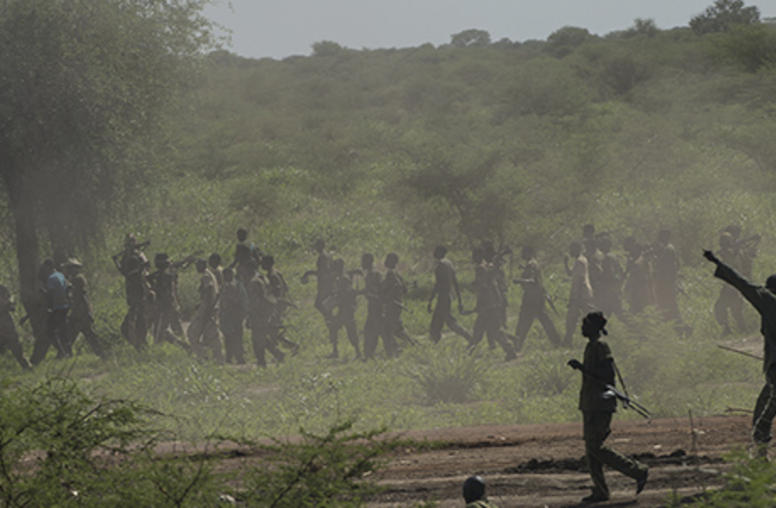
To Save South Sudan, Put it on Life Support
South Sudan marked its fifth anniversary as a state this month not with celebrations but with rival armed factions shooting at each other in the streets of the capital. Several hundred people were killed in less than a week, tens of thousands displaced, and even sacrosanct U.N. camps protecting civilians were attacked. South Sudan ceased to perform even the minimal functions and responsibilities of a sovereign state long ago, and today the likelihood of a larger pogrom and escalating civil war is high.
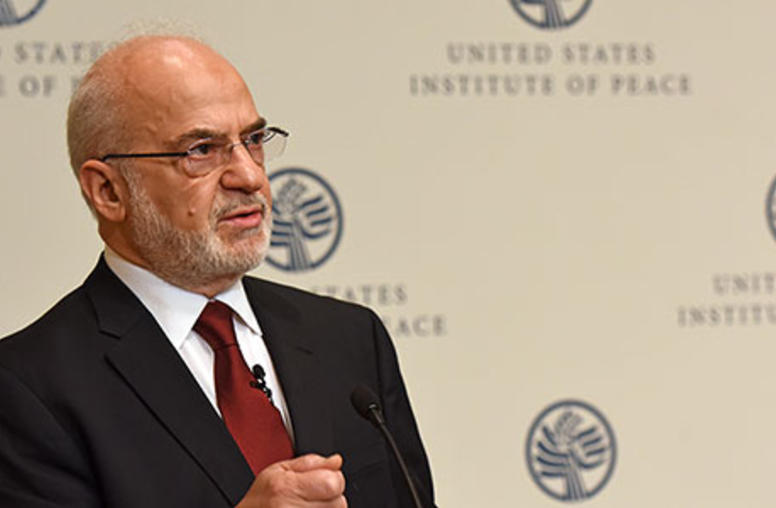
Iraqi Foreign Minister Appeals for Post-ISIS Aid
Iraqi Foreign Minister Ibrahim al-Jaafari and U.S. envoy Brett McGurk today emphasized the urgency of planning and financing Iraq’s recovery from the ISIS onslaught as areas the extremist group had controlled are recaptured more quickly than expected. The two spoke at the U.S. Institute of Peace in advance of an international conference of donors to Iraq convening in Washington tomorrow and a meeting the following day of the global coalition backing the fight.
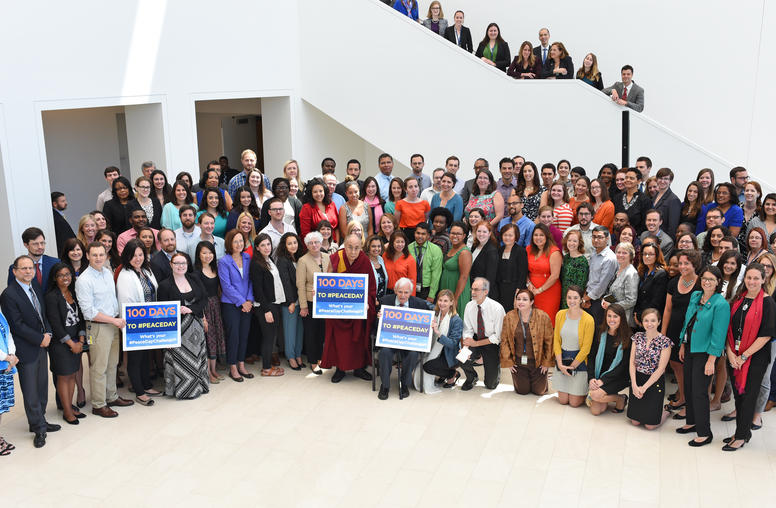
To Build Peace, Take Action: Peace Day Challenge 2016
His Holiness the Dalai Lama made a powerful point during a visit to USIP last month, a day after the Orlando nightclub shooting that killed 49 people and wounded 53. After leading the audience in a moment of silence for the victims and survivors, he noted his own skepticism about the power of prayer alone. “The real effect,” he said, “comes through … serious action.”
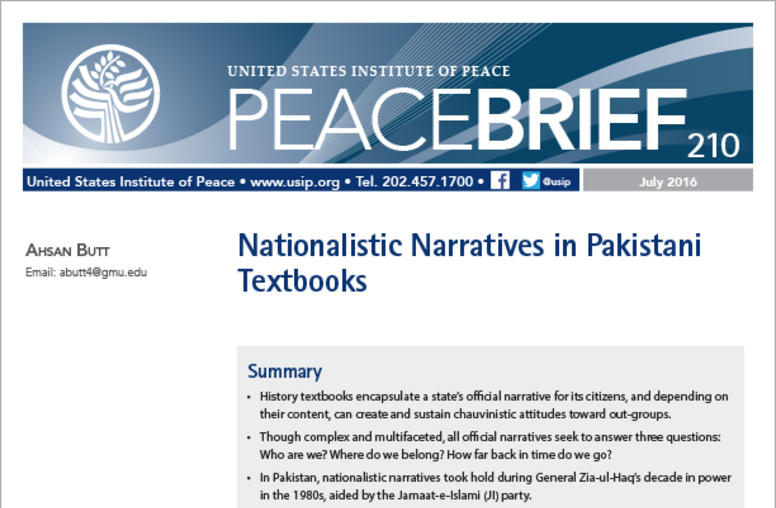
Nationalistic Narratives in Pakistani Textbooks
History textbooks capture a state’s official narratives regarding particular events, territory, groups, or phenomena. These narratives reflect and constitute a state’s national identity and can generate the potential for conflict because of their divisiveness. This brief summarizes initial baseline research on Pakistani textbooks, revealing the importance of bureaucratic politics, and highlights several implications for education reform and national and international stability.
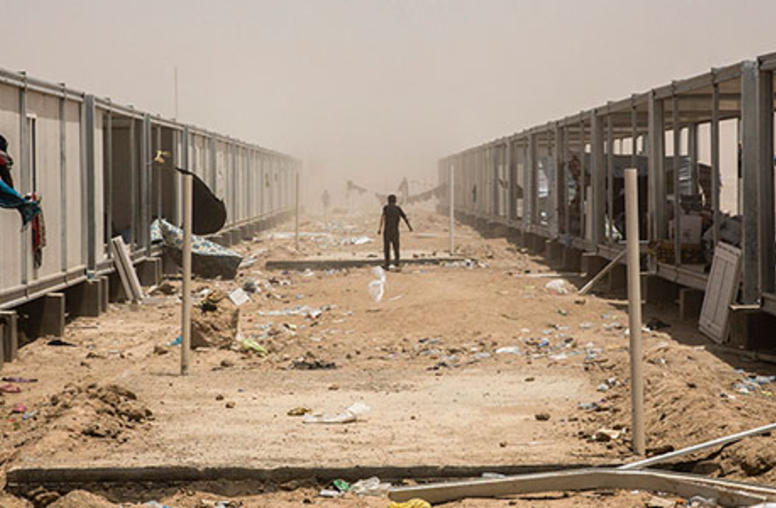
For Iraq’s ISIS Targets, Urgent Need for Aid and Security
The recent U.S. designation of genocide to describe the ISIS extremist group’s killings and persecution of minorities as well as Shia Muslims in Iraq and Syria highlighted the long history of oppression of religious and ethnic groups and the questions looming about whether religious minorities especially can survive in the region, according to USIP Senior Program Officer Sarhang Hamasaeed.
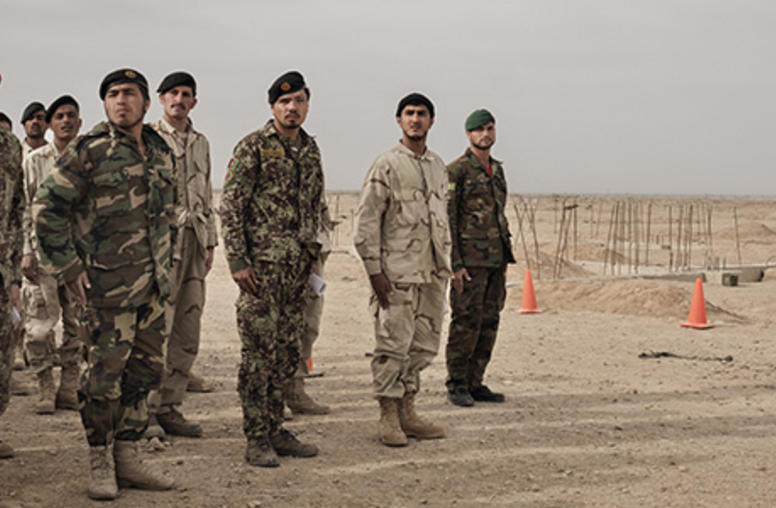
Q&A: Obama’s Troop Decision and Afghanistan’s Stability
Today, President Obama announced that he would extend the presence of roughly 8,400 U.S. troops in Afghanistan through the end of his term in January 2017, revising previous plans to cut force levels to around 5,500 soldiers at the end of the year. Afghanistan will be among the top issues for the NATO Summit of leaders in Warsaw, taking place later this week on July 8-9. USIP Vice President for Asia Programs Andrew Wilder, who recently returned from Afghanistan, discusses the issue of troop n...
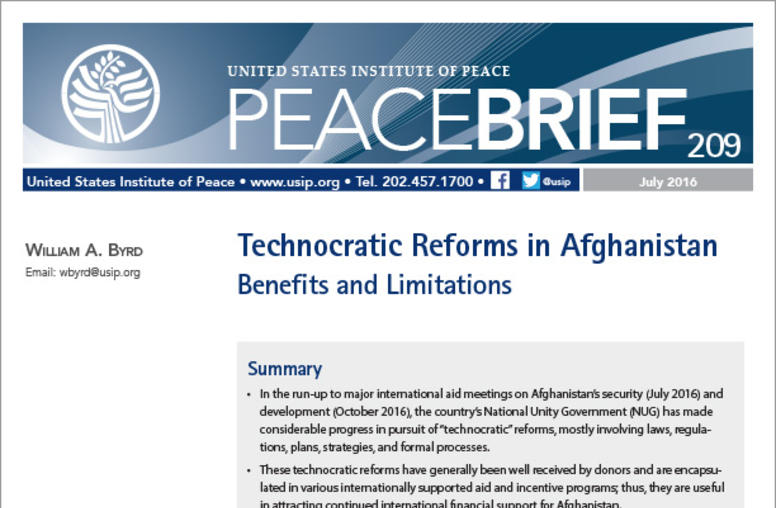
Technocratic Reforms in Afghanistan: Benefits and Limitations
Afghanistan’s “technocratic” reforms have resulted in impressive progress in areas such as public financial management. However, these reforms alone will not solve the country’s pressing security, political, and economic problems. This brief outlines the benefits and limitations of technocratic reforms and emphasizes that government and international attention should not be diverted from concrete, short-term measures to improve government functioning, strengthen security, and stimulate a mode...
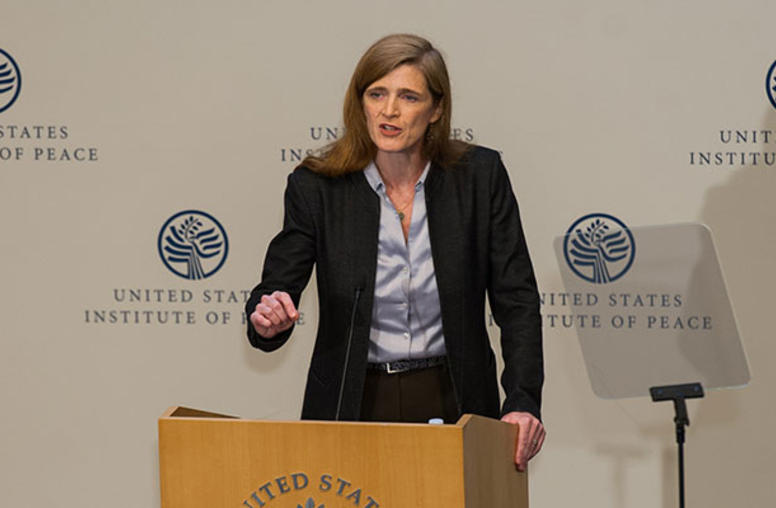
Refugee Crisis Threatens Global Stability, Power Says
United Nations Ambassador Samantha Power called on the international community—including the American public—to step up its response to the greatest refugee crisis since World War II, saying that failure to act may destabilize fragile states, strengthen organized crime and bolster the arguments of violent extremists that the West is at war with Islam.
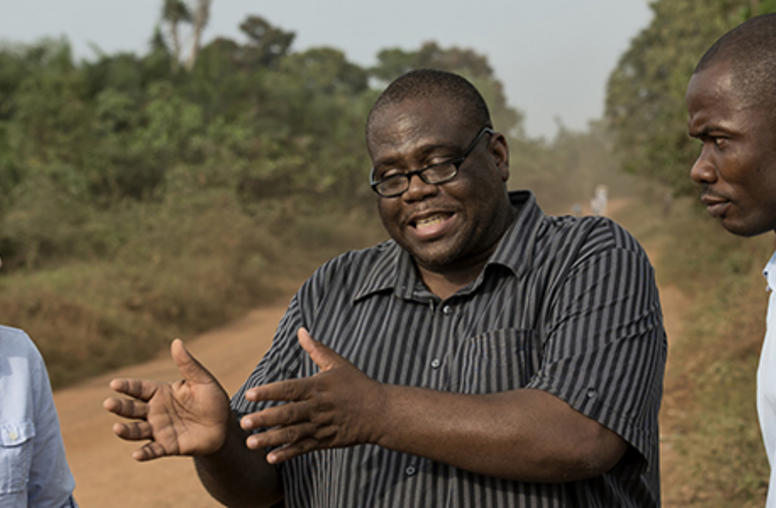
How to Cut Danger—And Accept Risk—in Civilian Missions
The U.S. State Department, searching for the balance between carrying out its missions overseas and minimizing the risk in high-threat environments, has rolled out an array of programs and policies to help diplomats and aid workers in high-threat environments, Deputy Secretary of State Heather Higginbottom said at the U.S. Institute of Peace. She spoke last week, before today’s release of a congressional report from a probe of the 2012 attacks in Benghazi, Libya, that killed four American civ...

Balochistan: Caught in the Fragility Trap
Although reports indicate an improvement in its overall security, Balochistan remains the most fragile province in contemporary Pakistan. This brief examines both the efficacy and motivations behind the state’s recent actions to end persistent conflict in the province.